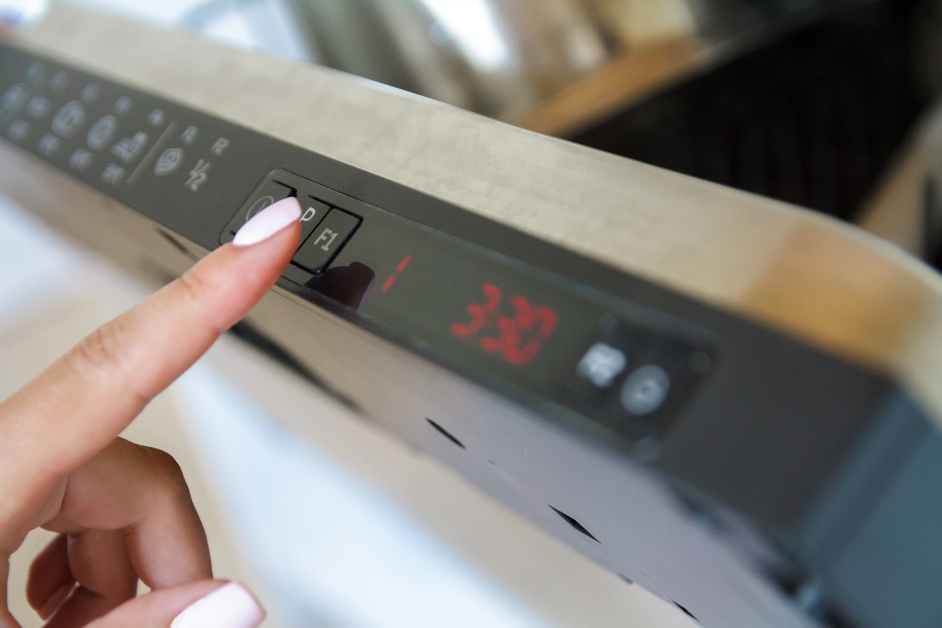If you’re a proud owner of a Bosch dishwasher, you likely rely on its efficiency to keep your kitchen running smoothly. But, encountering the E02 error code can throw a wrench into your routine. Let’s break down the E02 error code. We’ll cover its meaning, causes, and fixes. This includes practical troubleshooting steps to try at home
What Does E02 Mean on a Bosch Dishwasher?
The E02 error code signals a problem with the heating system. Specifically, this could involve the heater relay, temperature sensor (NTC sensor), or power control module. The dishwasher may fail to heat water, leading to longer cycle times and inefficient cleaning.
This error is often linked to:
- A faulty heating element.
- Malfunctioning control board or memory chip.
- Wiring issues or poor resistance values in the heating circuit.
- Problems with the thermistor responsible for temperature monitoring.
Understanding the root cause is critical before deciding on a repair or replacement.
How to Fix Bosch Dishwasher Error Code E02
Step 1: Power Down and Reset
The first step in addressing the E02 error code is to try a simple reset.
- Turn off the power: Unplug the dishwasher or switch off the circuit breaker.
- Wait for about 5–10 minutes to allow the control board memory to clear.
- Power up the machine and see if the error persists.
If the error returns, further troubleshooting is necessary.
Step 2: Inspect the Heating Element
The heating element is a common culprit for the E02 error. Follow these steps:
- Access the heating element: Typically located at the base of the dishwasher.
- Check for visible damage or burn marks.
- Use a multimeter in resistance mode to test for continuity. A functional heating element should show a resistance value between 10–30 ohms.
If the heating element is faulty, you’ll need to replace it with the correct part number (e.g., 12008382) to ensure compatibility with your dishwasher model, such as the SHX68T52UC/07.
Step 3: Examine the Temperature Sensor (NTC Sensor)
The NTC sensor, or temperature sensor, monitors water temperature during cycles. A faulty sensor can cause the dishwasher to misinterpret temperature readings, triggering the error.
- Locate the sensor near the heating element or water inlet.
- Use a multimeter to check its resistance. Resistance should vary as the temperature changes.
- Replace the sensor if it shows no change or incorrect resistance values.
Step 4: Check the Control Board and Heater Relay
The control board is the brain of your dishwasher, and a faulty relay on this board can lead to heating issues.
- Remove the electronic control board from its housing.
- Inspect for dry joints, burn marks, or soldering issues on the heater relay.
- Use a soldering iron to fix minor issues, but consider replacing the board if damage is extensive. Look for the exact replacement part number and ensure it is programmed for your model.
If the control board fault persists after replacement, consult a technician.
Step 5: Inspect Wiring and Connections
Loose or damaged wiring between the control module, heating element, and sensor can disrupt signals.
- Carefully inspect all wire harnesses and connectors for breaks or corrosion.
- Tighten or replace any compromised connections.
- Use insulated gloves for safety when handling electrical components.
Preventing Future Errors
- Regular Maintenance: Clean the dishwasher’s filters and check for blockages in the spray arms and drain.
- Avoid Overloading: Overloading the dishwasher can strain components and lead to faults.
- Use the Right Detergent: Opt for dishwasher-safe detergents to maintain efficiency.
- Annual Checkups: Schedule yearly maintenance with an appliance technician to inspect key components like the control module and heating element.
Final Thoughts
The Bosch dishwasher E02 error code can seem intimidating, but with the right knowledge and tools, it’s often a fixable problem. Replacing a heating element, repairing the control board, or getting help from a technician can fix your dishwasher. Addressing the issue quickly can restore its efficiency.
Remember, regular maintenance and cleaning are key to preventing errors in the first place. If you’re unsure about any step, don’t hesitate to contact Bosch customer support or consult a certified appliance expert. Happy fixing!



